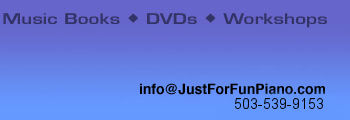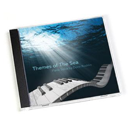 |
 |
|
|
|
|
|
Everything you wanted to know about audiobooks If you still haven't decided if you should start reading "with your ears" and want to learn as much as possible about the popular modern book format, then this article is for you. What are audiobooks? Broadly speaking, an audiobook is any fiction, educational, or popular science text that is dubbed and recorded on a data medium for further listening and distribution. But some researchers recognize as "real" only those works that are read out without corrections and abbreviations by one or two readers, without additional sound effects and with a moderate use of acting. When did audiobooks appear? The term originated in Germany in 1954, but when asked about the first audiobook, researchers have never reached a consensus. Some believe the earliest prototype is a recording of a popular science text, made in 1933 by anthropologist J. Harrington. Others note that music, speech and commentary on historical events were distributed and listened to by means of gramophone records as early as the late 19th century. In the United States, the first "talking" books for the visually impaired were recorded in the early 1930s. Europe adopted the experience of creating free audio libraries after the end of World War II. In the USSR, a similar project began to be implemented only in 1961 under the auspices of the All-Union Society of the Blind. Who invented audiobooks? In 1877, Thomas Edison, during a presentation of his "phonograph," suggested that it be used, among other things, to create "talking" books. A few months before the famous American, a description of a similar invention was offered to the French Academy of Sciences by the poet Charles Cros, but it brought him neither money nor fame. The first recordings lasted no more than four minutes, and with the advent of gramophone records their duration tripled. This was enough for a few poems or a short story. And fans of more extensive works had to wait another couple of decades before the advent of broadcasting. Who voices audiobooks? The text for the audio version can be read by one or more professional actors, amateur readers or even the author himself. Professionals often cope with the task better due to the correct pronunciation of words and the use of acting skills, but even among the amateurs sometimes meet "uncut diamonds. An experienced director can turn a book into an audio play or audio film by inviting several actors to voice it and slightly modifying the content. In this case, in addition to speech, other sounds are used to record: the splash of water, wind noise, background music, etc. What do I need to record an audiobook? If it is taken by an amateur, he will need at least: a quiet room, equipment for sound recording and necessarily - the permission of the author or copyright holder, if the work, which is prepared for dubbing, has not yet become "public domain". In order for the audio version of your favorite work to be good, it is desirable to have a pleasant voice and correct pronunciation. Professional readers, as a rule, cooperate with publishers and work in the studio. They not only have a microphone and recording device at their disposal, but also special equipment for noise reduction, as well as the services of a sound engineer. After many takes and several hours (or even days!) of work, the recording is run through an editor and "glued" into an audiobook, which can be broken into chapters or released as a single file. Who listens to audiobooks? Fans of the format include children and adults, teenagers and the elderly. Most of all, they are loved by those who refer to themselves as audialists, often busy with several things at once or spend a lot of time in traffic. And for the visually impaired and people with limited mobility, audiobooks become the only way to enjoy good literature. Why listen to audiobooks? Originally invented so that people with visual impairments could also read, audiobooks even today help join the world of literature to all those who, for health reasons or developmental disabilities, cannot use paper books. They are suitable for children who cannot read yet, and become a real godsend for those who prefer to absorb information by ear.
|
|
“It’s really great to know I can make more progress than I ever thought possible!” Jim Keesey “Donn Rochlin’s Piano class has enriched my skills as an accompanist, singer/songwriter, and music educator. His Heather Hutton |


